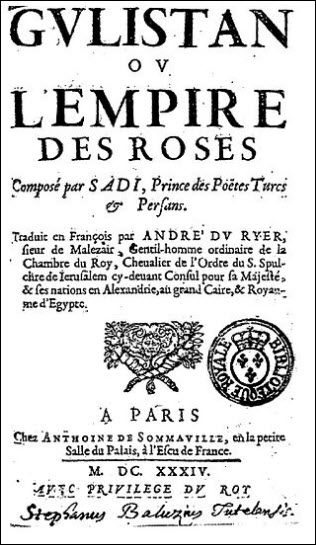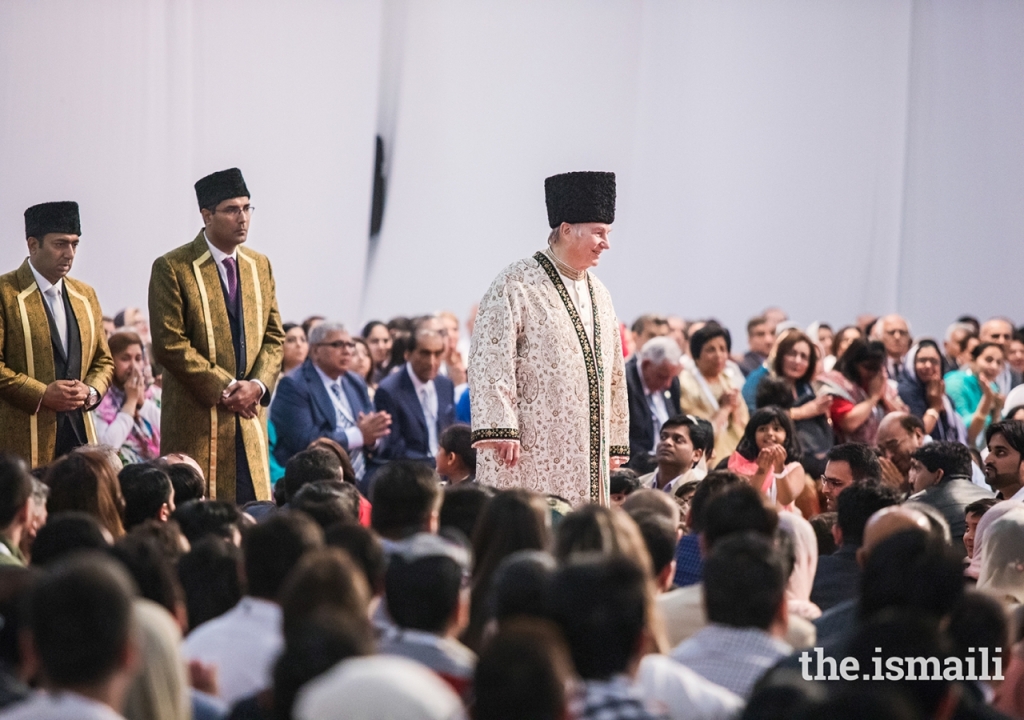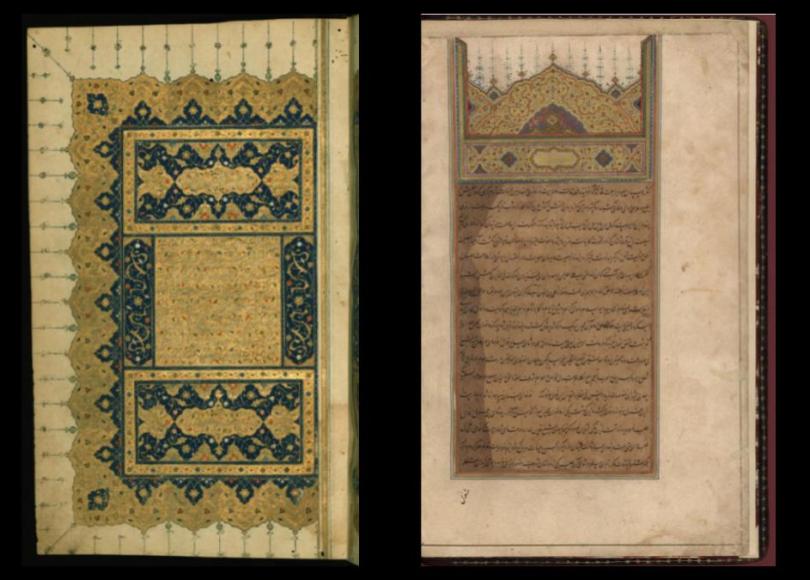Abu-Muhammad Muslih al-Din bin Abdallah Shirazi (ca. 1210-1291/2), better known by his pen-name Sa’di, after the local prince Sa’d ibn Zangi, was born in Shiraz in Persia (modern-day Iran). At a young age, he went to the Nezamiyeh College in Baghdad to study. Shortly thereafter, the unrest caused by the Mongol invasions forced him to leave the region and travel to Central Asia, India, Egypt, and elsewhere, returning to Shiraz some thirty years later where he spent the remainder of his life.
During his travels he gained widespread reputation as a respected poet through the circulation of his ghazals, which are considered masterful compositions. It is generally agreed that Sa’di’s travels increased his knowledge of the world thereby contributing to his cosmopolitan views, reflected in his works which also demonstrate his commitment to core values: concern for the marginalised, an awareness of the fragility of life, and a moral reckoning of this life and the life hereafter.
Although Sa’di is revered for his masterful composition of numerous qasidas in Persian and Arabic, his best known works are the Bustan (‘Garden,’ 1257) and the Gulistan (‘Rose Garden,’ 1258), included in his Kulliyat (‘Collection’). The Bustan is a poem comprising 4,000 couplets of stories and anecdotes on virtues, similar to Aesop’s fables, as well as a reflection on the mystical practices of the dervishes. The Gulistan, written in prose, is a reflection on morals. Sa’di’s works emphasise mankind’s unity and interdependence regardless of social barriers and labels.
In Anatolia (Turkey), al-Farghani (ca. early 14th century), translated Sa’di’s works into Turkish, composing several Persian qasidas in his honour. Renowned poets of the Indian subcontinent such as Amir Kosrow (d. 1325) and Hasan Sijzi (d. 1336) quoted and aspired to compose as eloquently as Sa’di.
Western readers were introduced to Sa’di’s work through a partial French translation of Gulistan by Andre du Ryer (in 1634), a complete German translation by Friedrich Ochsenbach (1636), followed by a Latin translation by Georgius Gentius (1651), and an English translation by Stephen Sullivan (1774).

Sa’di works have been referenced or quoted by several writers such as Alexander Pushkin in Eugeme Onegin (1832), and Henry David Thoreau in his Concord River (1849). The Gulistan is believed to have influenced Montesquieu’s Lettres persanes (1721) as well as Goethe’s Westöstlicher Diwan (1819).
The French engineer, mathematician, and statesman Lazar Carnot (d. 1823) gave his son a third name after the Persian poet – Nicholas Léonard Sadi Carnot – by which he would always be known: Sadi Carnot, the “father of thermodynamics.”


Source: The Digital Walters
Tales from the Kulliyat , which has been copied for numerous rulers and nobility, and translated into several languages, have inspired countless miniature paintings across the regions.
Widely recognised as one of the masters of classical literary tradition for the quality of his writing style and the depth of his thoughts, Sa’di’s Kulliyat was included in UNESCO’s Memory of the World Register in 2015, citing: “For eight centuries his parables, maxims, exemplars and poems have echoed the most popular words and wisdom; his perspectives have, and continue to, enlighten the most erudite of scholars.”
A copy of the Kulliyat was gifted to Mawlana Hazar Imam during his Diamond Jubilee visit to Dubai in January 2018.

Source: The.Ismaili/Akbar Hakim
Sources:
Norah M, Titley and M.I. Waley, The Bustan of Sa’di: An Illustarted Persian Manuscript dated 850/1446
Sa’di’s Kulliyat, Oldest Manuscriptt in INLA, Iran Daily
Gulistan, Australian Islamic Library
Golestan –e Sa’di, Encyclopaedia Iranica
Sa’di, Encyclopaedia Britannica
